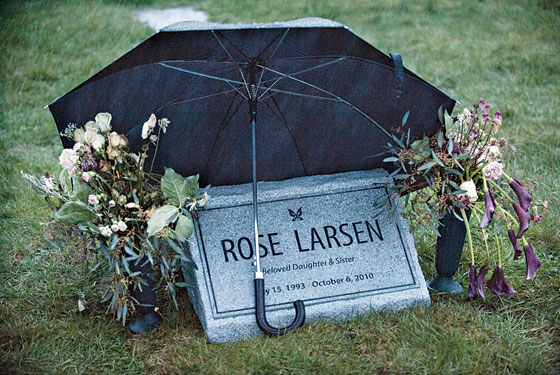
Two million members of the TV-watching population lost their minds this past June. The cause: AMC’s infuriating crime drama The Killing. Over its thirteen-episode season, introvert detective Sarah Linden, a woman as uninterested in chewing with her mouth closed as she was in methodical police work, tried to discover, as the ubiquitous ads put it, “Who Killed Rosie Larsen?” Viewers stuck it out through false leads, unlikely suspects, unlikelier coincidences, spotty character development, and endless rainstorms to get the answer to the show’s foundational mystery. But in the last minutes of the season finale, there came yet another “twist”: Rosie’s killer wouldn’t be revealed this season. The show itself was a red herring.
The reaction was aggrieved. Twitter exploded in a fury, recappers lost their minds, and critics wrote about how it was “an insult to the audience.” And the audience expected more; thanks to showrunner auteurs like The Sopranos’s David Chase, The Wire’s David Simon, Mad Men’s Matthew Weiner, Breaking Bad’s Vince Gilligan, and 30 Rock’s Tina Fey, we give new series the benefit of the doubt. But most shows, even on respected cable networks, are not being run by David Simon—they’re just being watched by audiences well-versed in his work.
Six months after The Killing finale, I am inclined to take a more sympathetic view of its failings, not because the show has gotten better upon reflection, but because I pity it. The series was simply out of its depth, like Rick Perry in the GOP debates, doing its best to imitate its more sophisticated peers but not quite smart enough to pull it off.
The Killing was one of a spate of new dramas this year that seemed to be ripping off, not advancing on, this quality entertainment. Veena Sud, The Killing’s showrunner, had the temerity to compare her ending to the finale of The Sopranos, as if frustrating audiences for the sake of itself was the same as providing lets-argue-over-the-meaning-forever ambiguity. NBC’s Playboy Club hit a punch list of Mad Men themes—sexism, racism, homophobia, bunnyism—but had nothing interesting to add about any of them. AMC’s Deadwood redux Hell on Wheels made its protagonist the ultimate anti-hero, a former slave owner, but failed to supply him with Al Swearengen–like charisma. And in Starz’s Boss, the lead character has a medical death sentence (it works in Breaking Bad) and an aide who, illogically, has sex in stairwells, because, you know, all the most serious dramas contain the most strenuous screwing.
In this world of both extremely high-quality television and the Internet, showrunners have for some years now had to directly interact with their increasingly sophisticated fans, getting feedback, ignoring feedback, cultivating their audiences, starting flame wars. Yes, the relationship is a fundamentally unbalanced one—they make, we watch and sometimes obsess—but the reaction to The Killing suggests a slightly less uneven phase in audience relations has begun, one in which tweeting couch potatoes get to give notes, and those notes are heeded. When audiences flipped out about The Killing (or the ending of Lost or the inconsistency of Glee) or ignored The Playboy Club, they were acting as quality control, exhorting showrunners to up their games.
After the finale, The Killing quickly became an exemplar of What Not to Do. Dan Harmon, the creator of the sitcom Community, sided with audiences by disparaging the ending and promising his viewers he would never lie to them in the same way. Sarah Michelle Gellar, star of Ringer, swore the creators knew how their series is going to end. And the creators of Homeland, which also hinges on a mystery, described The Killing as a “cautionary tale.” Homeland watchers, just like The Killing ones, have no choice but to hope for the best. But if the worst should happen, they’ll be prepared to tell the TV-makers just what went wrong and how. Which should mean better TV for us all.